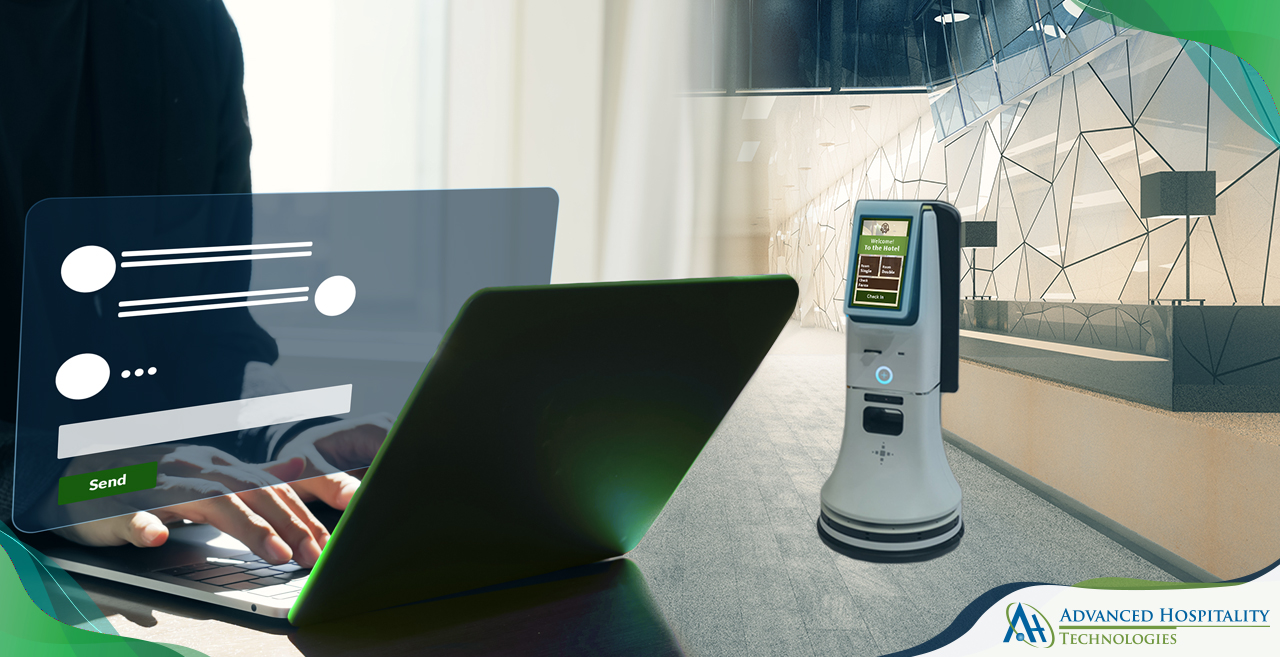Introduction
The hospitality industry is evolving rapidly, with technology playing a significant role in transforming guest services. Among the many innovations, chatbots have emerged as a valuable tool for hotels to enhance guest interactions and improve operational efficiency. Powered by artificial intelligence (AI), AI-based chatbots have become an integral part of modern hotel operations, offering round-the-clock support, personalized services, and seamless communication.
In this blog, we will explore the role of chatbots in hotels, how they enhance guest experience, and their impact on hotel operations. We will also delve into the benefits of AI-based chatbots and how they are reshaping the future of the hospitality industry.
What Are Chatbots in Hotels?
Chatbots are AI-powered tools designed to simulate human conversation and interact with users via text or voice. In hotels, AI-based chatbots are primarily used to assist guests with inquiries, bookings, and other services. These virtual assistants can handle multiple tasks, ranging from answering questions about hotel amenities to making reservations, all while operating 24/7
Enhancing Guest Communication
For many guests, convenience and prompt responses are essential. AI-based chatbots excel at providing instant replies to common guest questions, such as check-in times, Wi-Fi details, or room service options. Unlike human staff, chatbots are available at all hours, ensuring that guests receive assistance whenever they need it, even during off-peak hours. This level of availability significantly improves the overall guest experience.
Personalized Interaction
One of the standout features of AI-based chatbots is their ability to offer personalized interactions. By analyzing guest preferences and booking history, chatbots can recommend services, upsell room upgrades, or provide tailored suggestions for activities. This level of personalization helps hotels create memorable guest experiences, ultimately driving guest satisfaction and loyalty.
How Chatbots Enhance Guest Experience
The primary objective of implementing chatbots in hotels is to improve the guest experience. With an increasing number of travelers expecting seamless and digital-first interactions, AI-based chatbots are becoming essential in providing modern, convenient services.
Streamlining Check-In and Check-Out
One of the most popular uses of chatbots in hotels is to simplify the check-in and check-out process. Guests can use chatbots to check in online, receive digital room keys, and even complete the check-out process without needing to visit the front desk. This not only saves time but also provides a more efficient and contactless experience, which has become particularly important in recent years.
Assisting with Guest Inquiries and Requests
Guests often have various questions during their stay, whether it’s about nearby attractions, dining options, or hotel services. AI-based chatbots can answer these inquiries instantly, providing guests with accurate information and recommendations. Additionally, chatbots can handle specific guest requests, such as scheduling wake-up calls or arranging transportation, ensuring that guests receive timely and reliable assistance.
Improving Operational Efficiency with Chatbots
Beyond enhancing the guest experience, chatbots offer significant benefits in terms of hotel operations. By automating routine tasks, hotels can free up their staff to focus on more complex and personalized services.
Automating Routine Tasks
For hotel staff, responding to repetitive questions can be time-consuming. AI-based chatbots take over these tasks, handling frequently asked questions about room availability, check-out times, or parking. This automation allows staff to focus on delivering more personalized services, such as concierge tasks or addressing guest concerns, which improves overall operational efficiency.
Reducing Workload for Staff
By automating various guest interactions, chatbots reduce the workload for hotel staff, especially during peak times. This not only helps the hotel maintain a high standard of service but also prevents staff from becoming overwhelmed. With AI-based chatbots handling routine queries, hotel employees can allocate their time to providing exceptional guest experiences and attending to more complex issues that require a human touch.
AI-Based Chatbots: A Cost-Effective Solution
For many hotels, especially smaller independent properties, managing operational costs while delivering excellent guest service can be challenging. AI-based chatbots offer a cost-effective solution that enables hotels to provide 24/7 service without the need for additional staff.
Lowering Operational Costs
Unlike hiring additional staff to handle guest inquiries, chatbots require a one-time setup and minimal ongoing maintenance. They can operate continuously without breaks, reducing the need for night shifts or extra staffing during busy periods. This makes AI-based chatbots an attractive option for hotels looking to optimize their budget without sacrificing the quality of guest interactions.
Boosting Revenue Through Upselling
In addition to improving efficiency, AI-based chatbots can also help increase revenue by upselling hotel services. Chatbots can recommend room upgrades, spa services, or dining options based on guest preferences, often leading to higher spending during the guest’s stay. This automated upselling not only increases hotel revenue but also enhances the guest experience by offering relevant and timely suggestions.
The Future of Chatbots in Hospitality
As technology continues to advance, chatbots are expected to play an even larger role in the hospitality industry. The growing capabilities of AI, machine learning, and natural language processing will enable AI-based chatbots to handle more complex tasks and provide even more personalized guest interactions.
Integration with Other Technologies
The future of chatbots in hotels is closely tied to their integration with other technologies, such as voice assistants, mobile apps, and cloud-based systems. By integrating AI-based chatbots with these platforms, hotels can create a seamless and unified guest experience. For example, guests could use voice-activated chatbots in their rooms to control lighting, request room service, or ask for local recommendations, all without needing to pick up a phone or visit the front desk.
Continuous Learning and Improvement
As AI-based chatbots interact with more guests, they will continue to learn from each interaction, improving their ability to understand guest needs and provide accurate responses. This continuous learning will enable chatbots to handle more complex guest inquiries and offer an even higher level of personalization. As a result, hotels that invest in AI-based chatbots will see long-term benefits in both guest satisfaction and operational efficiency.
Conclusion: The Essential Role of Chatbots in Modern Hospitality
In today’s fast-paced and digital-driven world, chatbots have become an essential tool for hotels looking to stay competitive. By providing instant, personalized, and 24/7 guest support, AI-based chatbots enhance the overall guest experience while streamlining hotel operations. Hotels can use chatbots to improve efficiency, reduce costs, and increase revenue, all while delivering a superior level of service. As technology continues to evolve, the role of AI-based chatbots in hospitality will only grow, offering even more opportunities for hotels to innovate and meet the ever-changing expectations of modern travelers. Whether you’re running a large chain or a small independent hotel, embracing chatbots as part of your strategy can significantly enhance your guest services and operations, setting your property apart in a competitive market.




